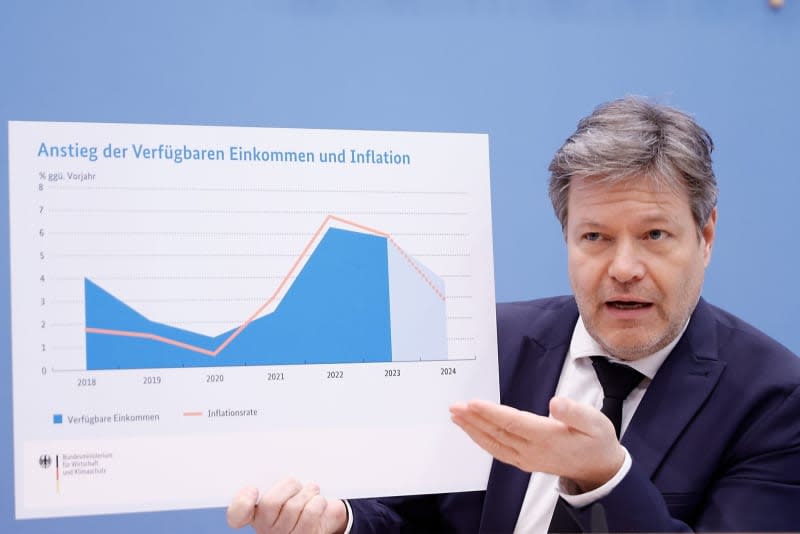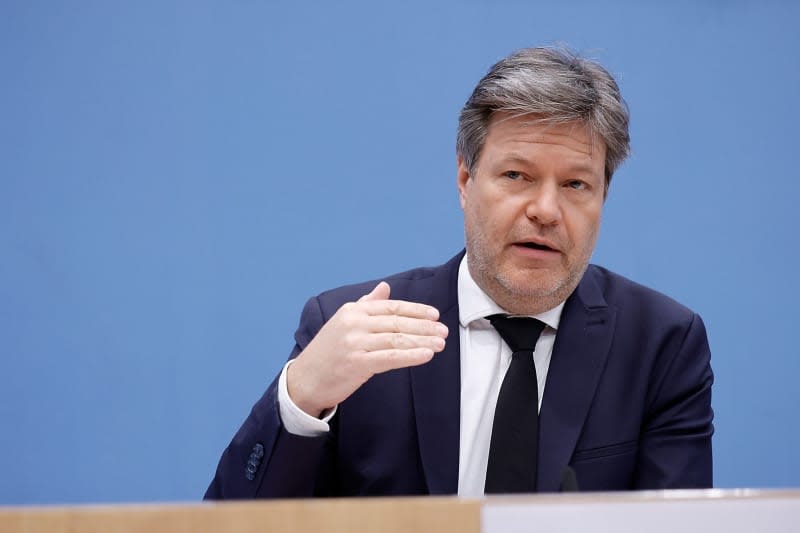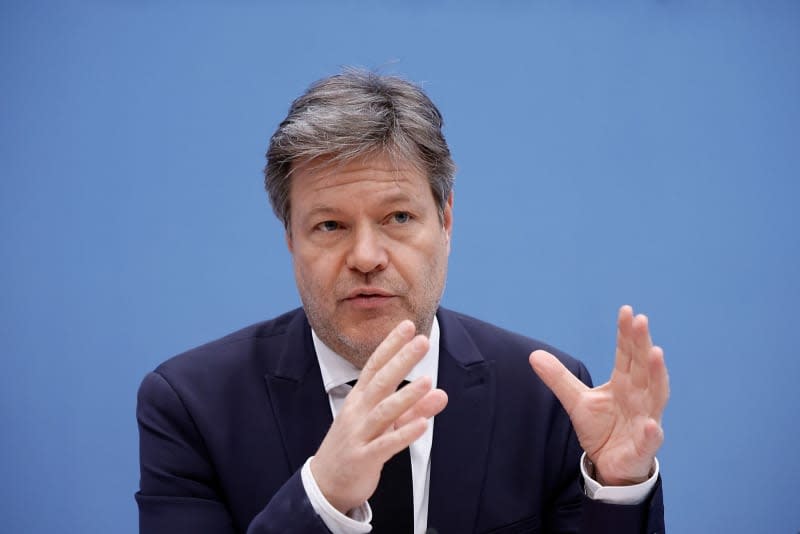German economy minister sees minimal growth and 'rough waters' ahead

- Oops!Something went wrong.Please try again later.
Economy Minister Robert Habeck on Wednesday said he sees the German economy in "rough waters" as the country is "coming out of the crisis more slowly than we had hoped."
The government expects only a small amount of growth of 0.2% this year, down from the 1.3% it predicted in its autumn forecast.
Last year, the German economy slipped into recession.
Habeck said the reasons for the gloomy economic situation include the historically low growth in global trade, which is particularly difficult for an export nation like Germany, as well as high interest rates, which are hampering companies' investments.
He also referred to the German government's need to save following a budget ruling by the Federal Constitutional Court which left the government with a €60 billion ($65 billion) shortfall.
Habeck also cited structural problems in Germany that had built up over many years. A "reform booster" is needed and the government must now work on this, he said.
"It is about nothing less than defending the competitiveness of Germany as an industrial location," he said, referring to the country's labour shortage.
However, there are differing ideas about additional relief within the coalition government. Habeck had proposed a billion-euro, debt-financed special fund, which his coalition partner, the pro-business Free Democratic Party (FDP), rejects.
A growth package for businesses which the Bundestag had already approved is in danger of failing due to the conservative opposition.
On Wednesday evening the mediation committee of Germany's Bundesrat and Bundestag reached a majority in favour of the growth package, though the opposition Christian Democrats (CDU) still haven’t agreed to it.
There will now be a showdown in the Bundesrat on March 22, when the controversial law will be voted on again.
The CDU and their Bavarian sister party the CSU had said approval of the law would be conditional on the coalition government withdrawing the cancellation of agricultural diesel subsidies.
CSU state group leader Alexander Dobrindt said that he had no confidence that the coalition would present substantial relief for agriculture by March 22.
After the end of the consultations in Berlin Bundesrat President Manuela Schwesig said the coalition government has promised to hold further talks with the agricultural sector about easing the burden.
The Bundesrat had blocked the growth package with the argument that the federal states and local authorities would have to shoulder a large proportion of the costs and tax losses.
In initial talks, the negotiating partners then reduced the volume of the relief from the originally planned €7 billion per year to €3.2 billion.
A premium for investments in climate protection, which was originally considered to be the centrepiece of the law, has also already been cancelled.



